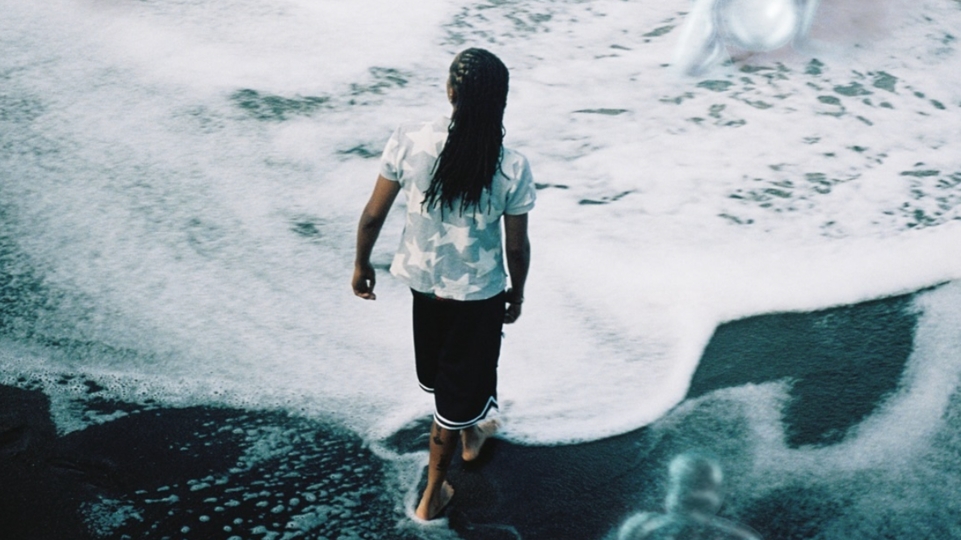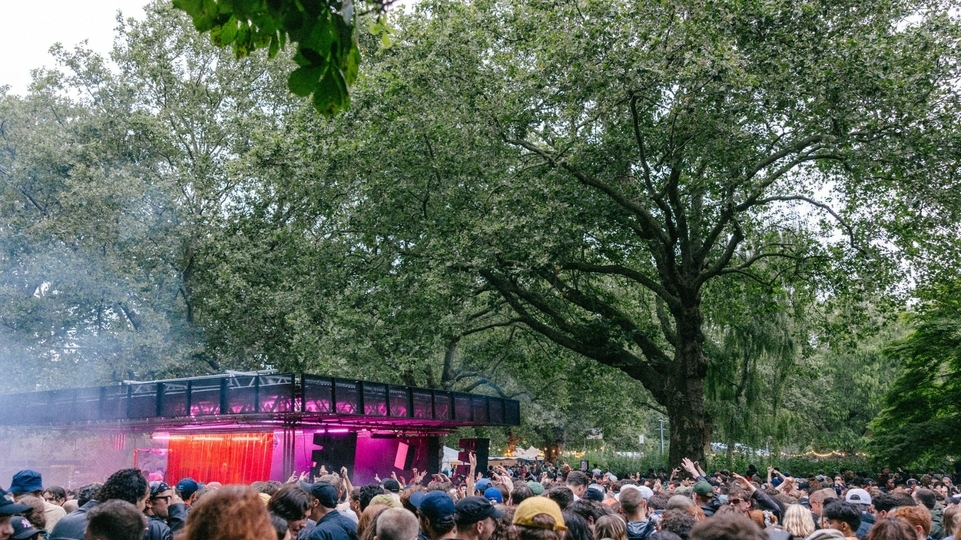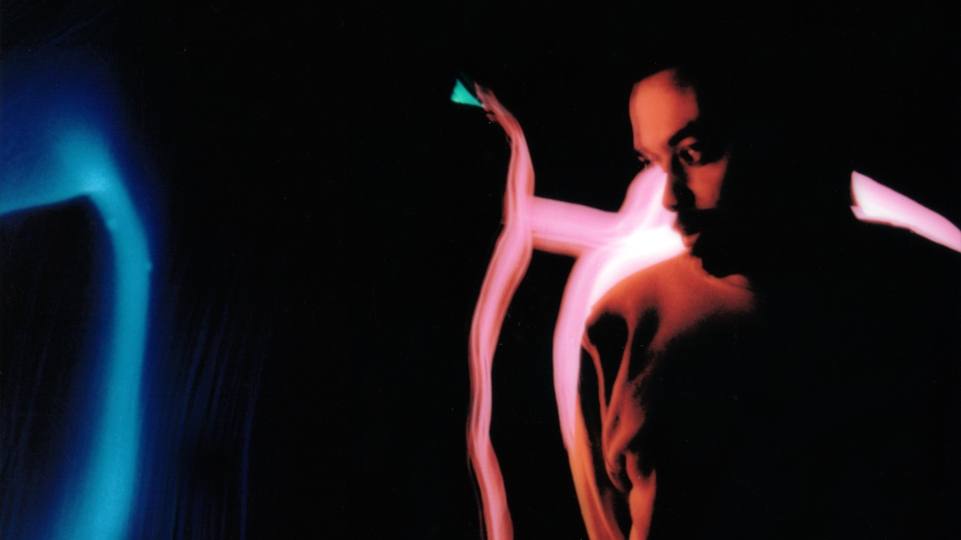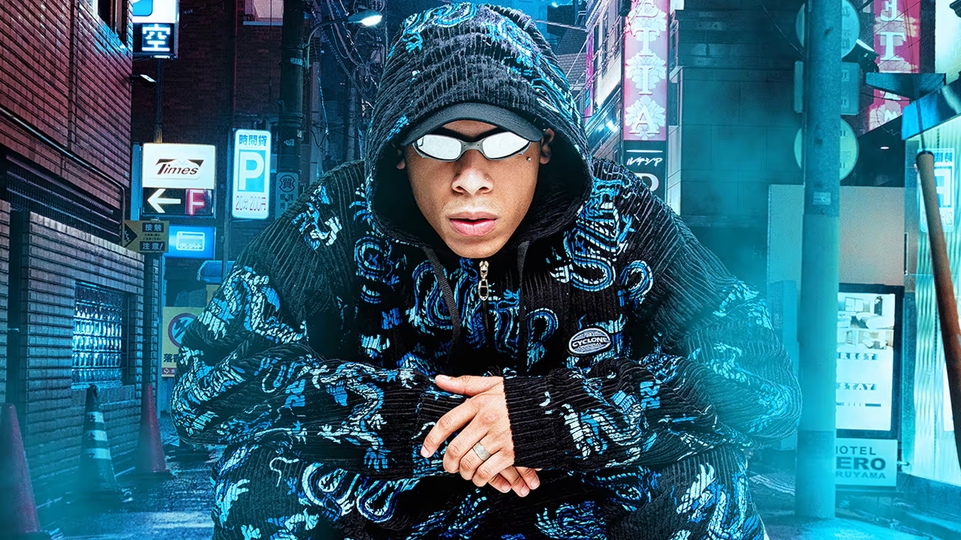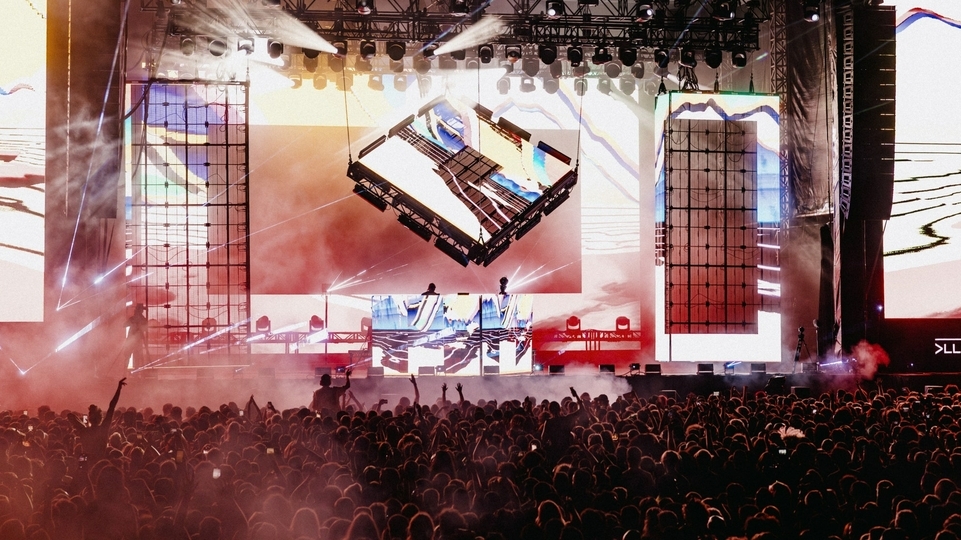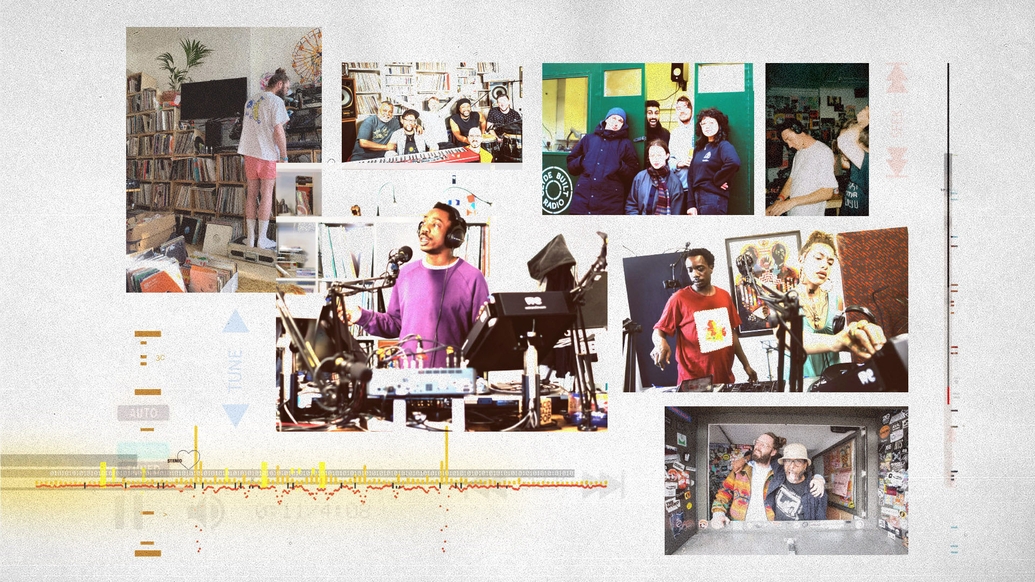
How independent radio has thrived in the pandemic
During a year decimated by lockdowns and venue closures, our need for sonic connection has sparked the resurgence of independent radio across the UK. Here, Ed Gillett look at the challenges grassroots stations have faced during the pandemic, finds out how they’ve thrived despite those pressures, and explores why radio’s become an increasingly vital source of community and comfort for its listeners
16th March 2021 marks the grim one-year anniversary of Matt Hancock’s statement to the House Of Commons that all “unnecessary social contact” across the UK should cease, a week before Boris Johnson’s formal introduction of a nationwide lockdown brought COVID-19 crashing violently into our lives.
With venues still shuttered, communal experiences of music and dancing have been all but eradicated, except perhaps for the small number of DJs and dancers brave or foolish enough to attend illegal “plague raves”. The full extent of this cultural loss is hard to quantify, but impossible to ignore: what’s the point of dancing if we can’t dance with each other?
Deprived of the dancefloor, increasing numbers of music fans have been turning to radio. Research undertaken in the spring of 2020 by Radiocentre, the industry body for commercial radio stations across the UK, revealed record listening numbers: 40% of people are tuning in for longer than they used to, and 90% say that radio has kept them company. These trends can be seen not only across mainstream commercial stations, but in underground dance music ones, too. While the pandemic has created new challenges and uncertainty for independent stations and DJs, it’s also forced them to rethink their output, explore new approaches, and build deeper emotional connections with their audiences.
Will Dickson is Communications Manager at East London’s much-loved independent station NTS. “We shut down our studio two weeks before the national lockdown, but we managed to do a surprisingly good job of adapting,” he says. “You lose the social aspect of having a studio; the spontaneous, organic interaction of one host finishing their show and meeting the person who’s on after them. But it means we’ve developed ways to broadcast live from the homes of our residents and open up our international broadcasting.”
In mid-July, music fans of all stripes tuned in to hear Sopranos actor Michael Imperioli present an hour of music inspired by A Streetcar Named Desire. “For some reason, it seemed like half of Twitter was re-watching The Sopranos during lockdown, it was just a perfect storm,” laughs Dickson. “But it wasn’t like some manufactured radio moment: one of our programming team happened to see Michael post a shoegaze record on his Instagram, thought it’d be funny to contact him, and it turned out he wanted to do it.” Like all the other stations interviewed for this piece, NTS’ listener numbers have grown substantially during the pandemic: from 1.5 million monthly listeners in 2019 to 2.5 million a year later. Back when lockdown started, though, thinking about positive outcomes felt churlish. As it became clear that COVID-19 was going to fundamentally alter our lives, the main question facing stations was how to cope, never mind thrive.
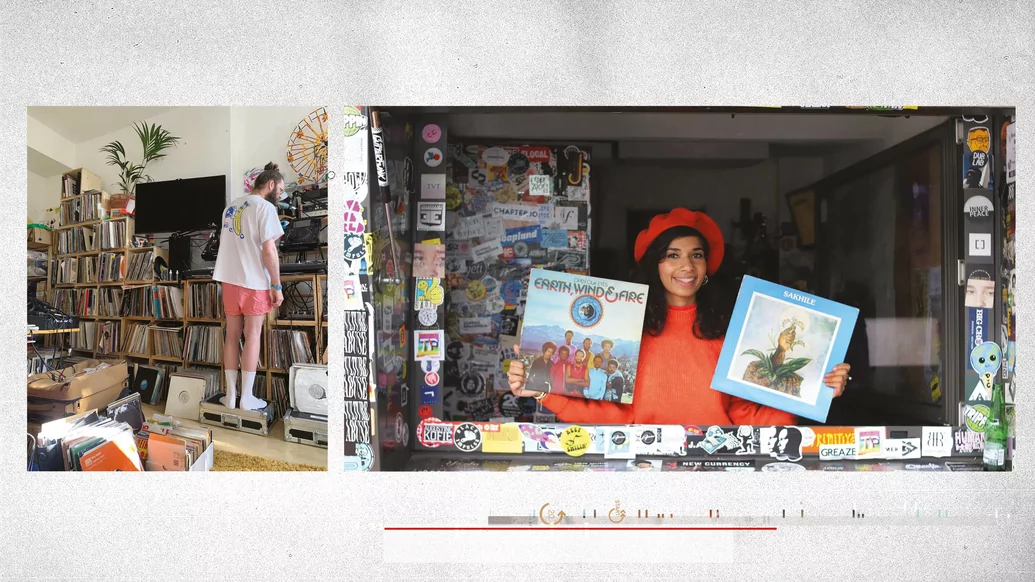

"I fought hard against my own nature for a long time: the way I went about things really wasn’t accepted, and that was reflected in the guests I booked, like I was clawing for some sort of respect. But since lockdown happened and you weren’t allowed any guests, I took it as an opportunity to just be myself” — Charlie Bones, NTS
Pre-Record
Adrian Newman manages the Brixton-based station Reprezent FM, a platform for Black and under-represented voices. “I think it was early February, when numbers started going up in Europe, that I realised this was going to be a serious problem,” Newman says. “I was talking to stations like Balamii and Rinse FM, and they were really stressing out.”
“I sent out an email to all our presenters that said, ‘I just want to know four things: do you have decks, a mic, half-decent internet, and a laptop at home?’ I made one spreadsheet of all the gear the DJs had and another with all of Reprezent’s kit, and I started mixing and matching. Out of our 110 shows, I figured that 25 to 30 could go live now and another 35 to 40 could pre-record from their homes. In early March, I drove all over London dropping off kit,” he remembers.
That process wasn’t without its difficulties, though. “I was talking to one of our staff members and saying, ‘Look, I think we’re going to lock down, so we need to reprogram the station’. One DJ had the kit to broadcast from home, but she does an 11pm show and lives with her mum, so we needed to move her to a daytime slot. A couple of days later she showed me a new schedule plan — for one week.” Newman laughs. “I was like, ‘No, it needs to be three months long’, and she was like, ‘Fuck off’, because nobody knew what we were facing.”
But that initial scramble to keep Reprezent running worked. The station switched over to remote streaming shortly before lockdown, without a second of dead air, while the rest of the country panic-bought toilet roll, downloaded Zoom or started Googling sourdough recipes.
Over in Liverpool, Nina Franklin and Toby Taylor from the dance-focused independent station Melodic Distraction called on the city’s network of live music organisations for help. “We were very lucky in that a lot of audio equipment providers within Liverpool were very generous with their kit,” says Franklin. “They realised their summer was going to be a write-off, so they wanted to make sure their equipment was going to people who could actually use it. Without their help, we wouldn’t have been able to broadcast from home and maintain our schedule.
“I think that’s one of the nice things about our community in Liverpool and across the North-West,” Taylor continues. “People were willing to roll their sleeves up and get stuck in.” Like Adrian at Reprezent, Nina and Toby ended up driving various bits of kit to all corners of Liverpool to keep their DJs on air. “We spent a week driving round with plastic bags full of XLR cables and dropping them off on people’s doorsteps.”
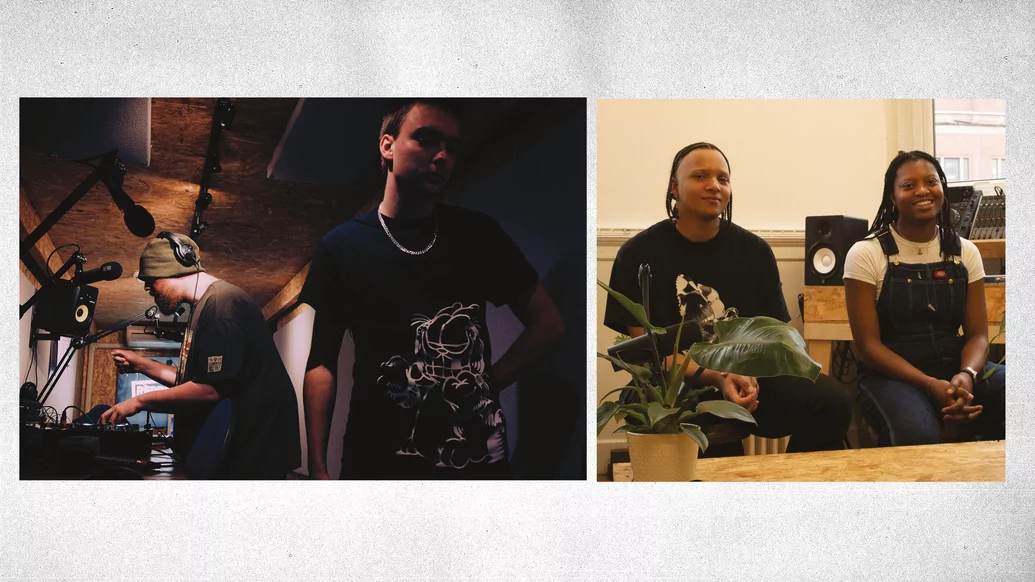

That hectic, broadcast-at-all-costs philosophy wasn’t universal, though. For some stations, the pandemic meant stepping back and creating space for people to deal with wider issues. Baile Beyai is the co-founder of Sable Radio, a Black-led station in Leeds which acts as a hub for the city’s diverse creative communities. “I have maybe a slightly different ideological position to some other online radio stations,” Beyai says. “I wasn’t running around like crazy, I was happy to take things as they come. We slowed down, reducing our schedule to just one day a week.”
“A couple of months in we started our Sable At Home programme, which was just me cycling round on my bike, doing filmed doorstep interviews with some of our DJs and then pairing that content with a mix,” he continues. “Reducing our scheduling gave us more time to double down on what we’re doing, and recognise that there’s a lot of different things going on in people’s lives right now.”
Community
Baile’s approach comes from an understanding that grassroots radio is inextricable from its wider social context. When we talk about “community” stations, it’s important to remember that the community in question doesn’t just mean listeners, but broadcasters too: enabling hosts to deal with their experiences of the pandemic is just as valid an approach as staying seamlessly on air.
Papi Chulo, a Sable resident DJ who specialises in Latin American music, was grateful for Baile and co-founder Ora’s relaxed approach. “There are lots of students working with the station, or artists who are working precariously, who valued having that time to breathe a little. Things like Baile bringing equipment round to people’s houses was partly about broadcasting, but also to give people support.”
The past year has sparked similar questions around priorities and care at bigger independent stations. For Thris Tian at Worldwide FM, the most transformative force of 2020 wasn’t the pandemic, but an increased focus on structural racism as the Black Lives Matter movement gained momentum.
“Black Lives Matter, and the heightening of cultural awareness around that, has been one of the most important things to have ever happened in my own life,” he says, “but it also gave everyone at Worldwide the ability to dissect who we are as a station; to think about the music we’re playing, who’s playing that music, and why they’re playing it. We brought in HR consultants, and our staff are having more conversations about mental health and racial equality, which has given us a stronger platform to host content that touches on those points.”
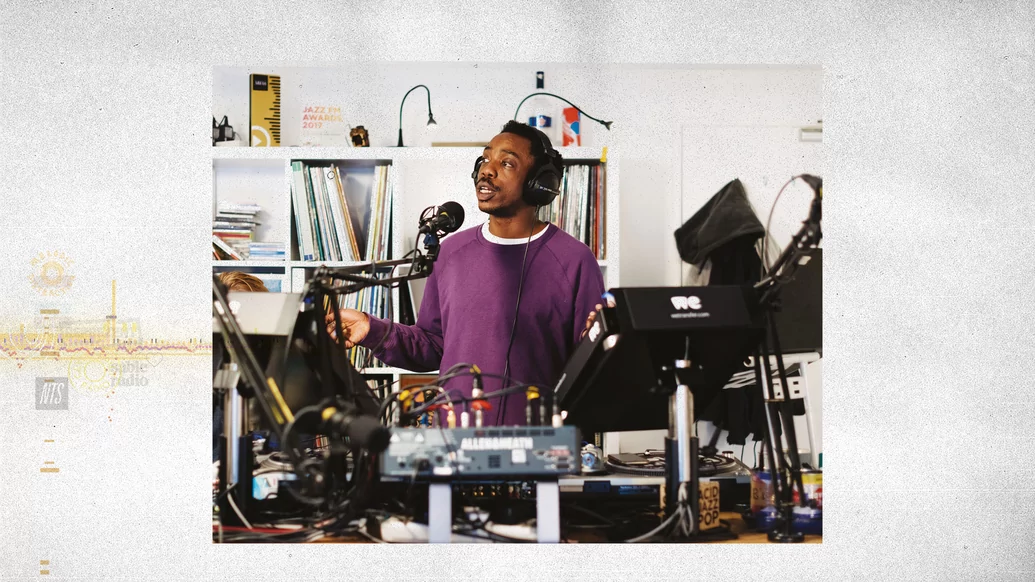

“Black Lives Matter also gave everyone at Worldwide the ability to dissect who we are as a station; to think about the music we’re playing, who’s playing that music, and why they’re playing it” — Thris Tian, Worldwide FM
COVID-19 itself didn’t upend Worldwide’s programming, but it did create the space needed to grapple with wider issues. “The pandemic highlighted a bunch of stuff, and gave us time to talk about it properly,” says Thris Tian. “You can’t get away from it now. I can say: right, I’m going to call this person and we’re going to talk about this difficult stuff, because they can’t pretend like they’re not at home today. I feel like our audience has responded to that as well, and been brave enough to keep asking us those questions. We did a massive reschedule in October to rebalance the output of the station: I don’t think it’s the case that if you’re a white dude you can’t play Black music, but it was about giving those issues a due level of care and attention.”
There’s a similar sense of thoughtfulness and reflection from Andrew Thomson of Glasgow’s Clyde Built Radio, which was only formed in February 2020, weeks before the pandemic shuttered their newly-opened studio. Andrew also runs the label Huntleys + Palmers: we speak to him on Clyde Built’s first birthday, and shortly after the tragic death of SOPHIE, who’d worked with Huntleys + Palmers at the beginning of her career.
“I’ve obviously been thinking about SOPHIE and the station a lot, and I feel like there’s a real through-line from the label to what we’re doing now with Clyde Built,” he says. “When we put SOPHIE’s first records out, it was at the height of a certain laddish culture in Glasgow clubbing, very male-dominated. Things have changed over time though, and we’ve tried to contribute to diversity and representation; it feels like the station has been the best way of trying to achieve that.
“I’ve always tried to release music by younger or emerging artists,” he continues, “and I’ve sometimes felt frustration at them not getting the attention they deserve, or frustration with the music media. But the station’s been a platform that gives us a bit more to hold onto, that can represent and include a lot more people.”
Creative Connections
Like Sable, Clyde Built have used pandemic restrictions to sharpen their focus on natural forms of creative development. “We had plans to do events, fundraisers and other stuff to run alongside the station, but they would have all been distractions. The only thing we can do now is focus on the programming. Some of the presenters we approached when the station started would say ‘I’m not a DJ’, but they’ve realised that they do have a place here,” he explains. “We’ve been able to build a community — or rather, the community was always there, but we’ve added some new, connective tissue to it.”
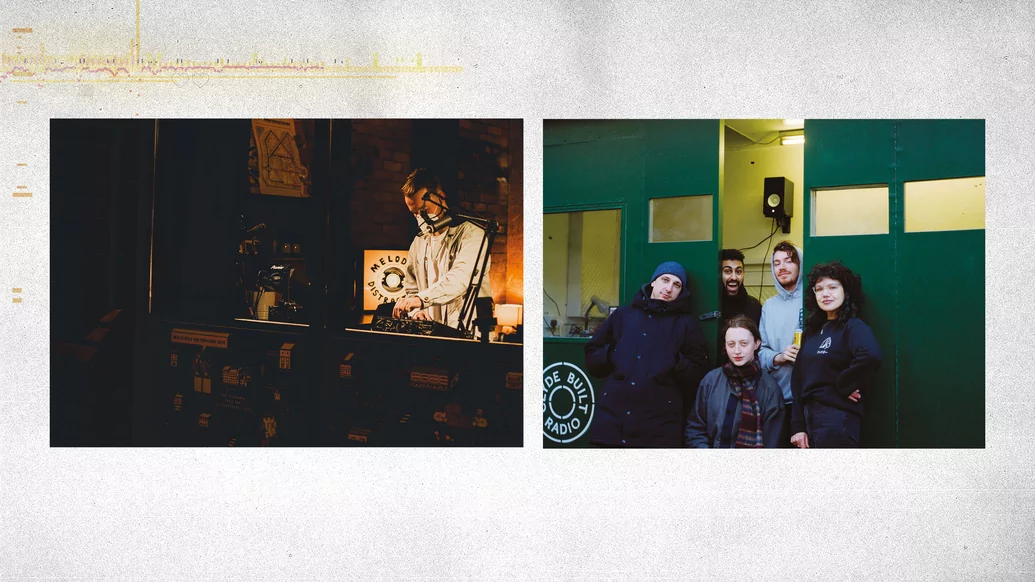

“We’ve been able to build a community — or rather, the community was always there, but we’ve added some new, connective tissue to it” — Andrew Thomson, Clyde Built Radio
That sense of creative connections being forged despite the pandemic crops up across multiple conversations with stations and DJs. When the pandemic forced the West Indian Carnival in Leeds to take place online for the first time ever, Sable stepped up to livestream the event, using that experience to strengthen their wider broadcasting skills.
“We ran the stream over two days, which was really hectic,” says Baile, “but it was amazing to pivot to events like that. One minute it’d be a DJ set, and then you’d have a 12-piece steel pan band come in, and we’d have to mic them up and broadcast that. It lit a fire under us to develop the creative production side of the station; we invested in camera equipment and did more livestreams in the following months.”
Sable also worked closely this year with Manchester’s Bound Art Book Fair and their digital offshoot, Hypertext. Resident DJ babyschön took Slits member Viv Albertine’s memoir as the starting point for a show exploring the band’s back-catalogue, while the Souq Sounds show took a more obliquely literary slant, using their Hypertext show to tell an on-air story from multiple perspectives. Papi Chulo used his show with Bound Art Book Fair to dig deeper into the historical roots of the Latin American sounds his DJing focuses on: rather than honing in on the latest experimental club rhythms, he used the time and space afforded him to explore lineages of salsa, merengue and cumbia.
Lashawna Rose’s show on Reprezent has also developed despite (or perhaps because of) the challenges she’s faced during the pandemic, both on a creative level and in terms of the emotional connection she feels to her listeners or fellow DJs. “When we first went into lockdown, I wanted to include other Reprezent presenters who couldn’t do their shows live — so I’d ask them to send me voice-notes telling me what they’d had for breakfast and what they’d been doing to keep themselves busy throughout lockdown, and incorporate that into the show.
“I actually felt kind of excited at the start of lockdown, because now I’ve got all this time to try different things,” she says. “I’m grateful that I’ve learned loads of new skills — my DJ controller broke, but that meant I’ve had to learn how to use Logic, so my editing skills have got better and my attention to detail has become loads sharper.
“I’ve got way more listeners now, and I have way more interactions with them,” she continues. “People have had time to check out the show and I get loads more people messaging to say they loved a particular song, which has been great. And a lot of people are tuning in every week, so I see them coming back. If I miss my show one week, I feel kind of lost without it.”
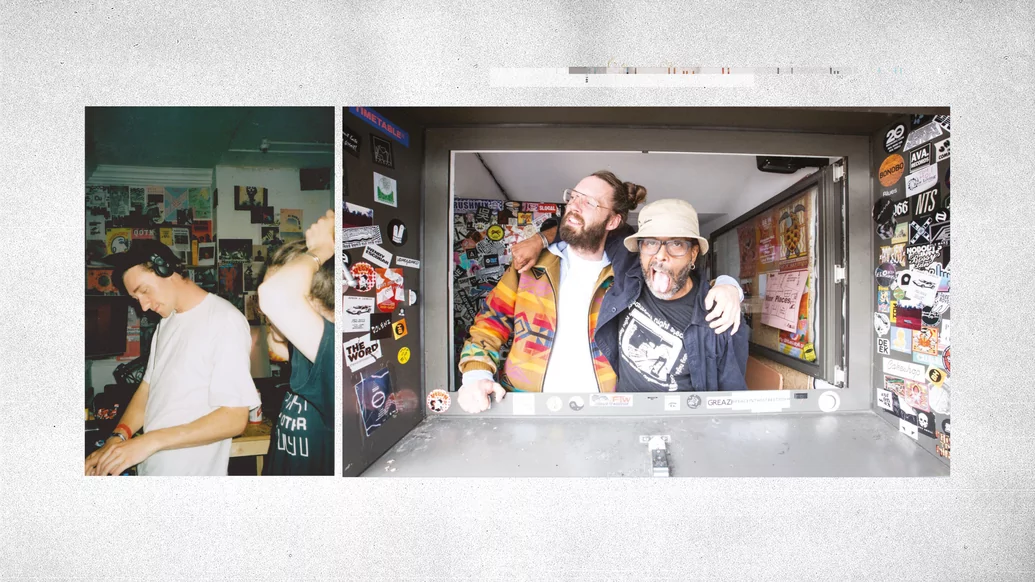

Chatroom
That sense of connection can be seen in the community that’s formed around Charlie Bones’ weekday Do!! You!!! breakfast show on NTS. Nominated for Best Radio Show at DJ Mag’s Best of British awards in 2020, the relationship that Charlie’s built with his audience through call-ins, emails and the NTS chatroom has grown in the decade since the station was formed.
“For me it’s been 10 years,” says Charlie. “Back in the early days of NTS everyone was too scared to say anything, but now the chatroom’s really interesting because it’s developed so much. You see it constantly changing, the dynamic shifts every day, but it’s also got to the point where it’s so busy that it kind of self-balances. That’s the ideal — when it’s all quite pluralistic, there’s no one person dragging it in any one direction.”
That sense of mutability extends to Charlie’s DJing and presenting. His leftfield music choices and ramshackle interviews often feel chaotic, but also in tune with the unpredictable, vulnerable nature of pandemic-restricted life. From playing all 24 glorious minutes of ‘I Trawl The Megahertz’ by Prefab Sprout on a crisp spring morning, to his Wednesday morning jukebox slots, with callers belting out their favourite songs at varying levels of tunefulness, his shows have been a regular source of unexpected joy.
“It’s really odd trying to explain my show to more established DJs because they don’t get it,” Charlie says. “I’m like, ‘C’mon, don’t you just want to chat and play some records?’ I fought hard against my own nature for a long time: the way I went about things really wasn’t accepted, and that was reflected in the guests I booked, like I was clawing for some sort of respect. But since lockdown happened and you weren’t allowed any guests, I took it as an opportunity to just be myself.” Themes of self-recognition and self-reliance recur at larger scale when speaking to stations about their future prospects: a sense that if sticking to the broadcasting they believe in has got them through this most challenging of years, it’ll also help them to come out of the shadows; to return to some kind of semi-normality, and build on the experience they’ve gained during 2020.
Several platforms, including NTS and Bristol-based Noods Radio, have launched supporter schemes, giving them recurring sources of income without having to rely on brand-funded projects or the complexities of public funding from Arts Council England and others (which have nonetheless played a critical role in keeping some stations afloat). Looking at the uncertain prospects of the year ahead, Noods station manager Leon sounds impatient to push things forward.
“We’ve been trying to sort out a proper studio for a couple of years, and got invested in a couple of places, but for one reason or another they’d fall through. But because of lockdown a lot of commercial buildings became more available, so we’ve now got a studio space we’re hopefully going to be opening very soon. It’s going to be great to finally have our own place,” he continues, “somewhere we can all see each other in person, rather than just talking on social media. Properly make those connections.”

